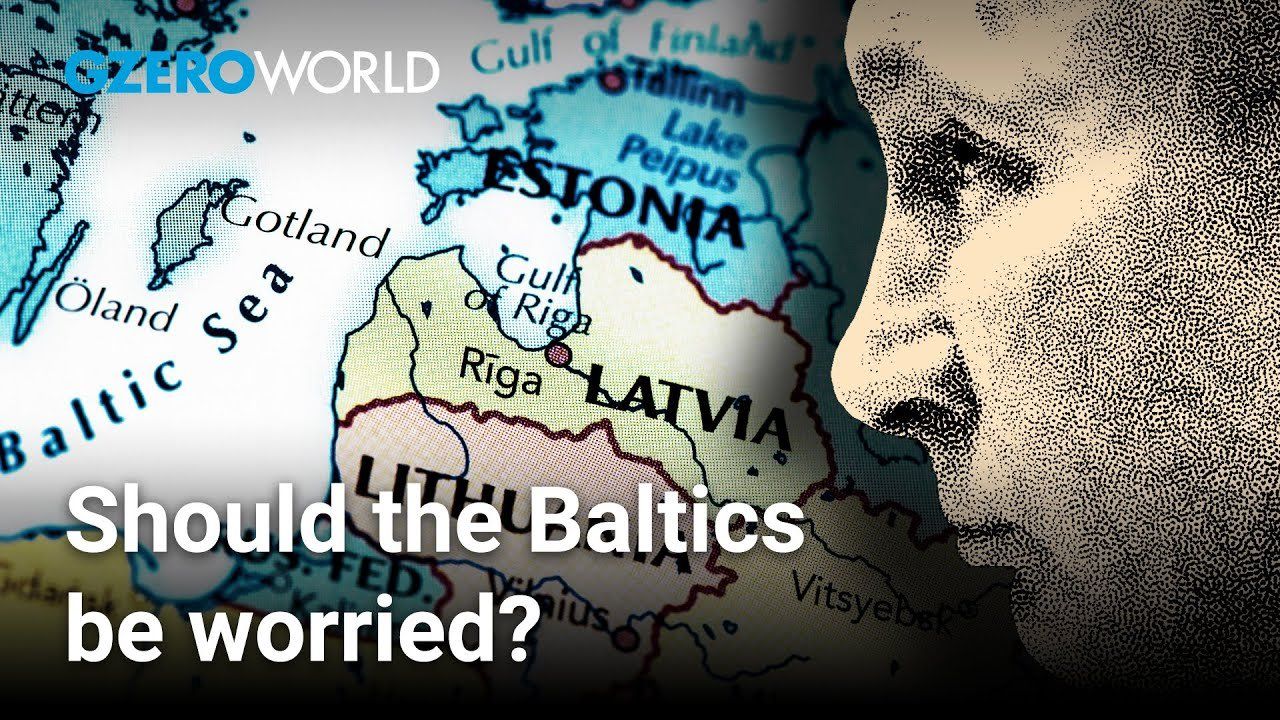March 04, 2025
Baltic leaders have few illusions that once Putin is done with Ukraine he won't look to his northwest neighbors next. On GZERO World with Ian Bremmer, Latvian Foreign Minister Baiba Braže addresses concerns about a potential Russian invasion of the Baltic states, saying that such a move would be an entirely new ballgame and would mean direct war with NATO; even still, Braže says, no scenario should be ruled out. “The task for all of us is not to exclude anything. So to be ready, to be prepared, to exercise, to test, and to make sure it doesn’t happen,” she says.
Braže underscores the importance of NATO’s deterrence strategy, stressing that the alliance must demonstrate both strength and resolve to prevent any miscalculations from Moscow. Beyond conventional military threats, she highlights the dangers of hybrid warfare, including cyberattacks and disinformation, as key battlegrounds in the ongoing struggle between Russia and the West.
Watch full episode: The fight to decide Ukraine's fate
GZERO World with Ian Bremmer, the award-winning weekly global affairs series, airs nationwide on US public television stations (check local listings).
New digital episodes of GZERO World are released every Monday on YouTube. Don't miss an episode: subscribe to GZERO's YouTube channel and turn on notifications (🔔).
More For You
Ukraine's President Volodymyr Zelenskiy, Finland's President Alexander Stubb, Estonia’s Prime Minister, President of the European Commission Ursula von der Leyen and other European leaders visit memorial to fallen Ukrainian defenders at the Independent Square on the fourth anniversary of Russia's full-scale invasion, in Kyiv, Ukraine February 24, 2026.
Ukrainian Presidential Press Service/Handout via REUTERS
Somewhere in the Donbas region, Ukrainian soldier Artem Bondarenko says he hasn’t slept through the night in months as he defends Eastern Ukraine.
Most Popular
Members of the special units of the National Guard and the Secretaria de Seguridad Ciudadana stand guard in front of the Fiscalia General de la Republica, where the investigation into the operation in which Nemesio Oseguera Cervantes, alias "El Mencho", founder and leading head of the Cartel de Jalisco Nueva, was killed, is underway.
Félix Márquez/dpa via Reuters Connect
- YouTube
In this Quick Take, Ian Bremmer warns that US military strikes on Iran are “looking increasingly imminent” as diplomacy appears to stall.
© 2025 GZERO Media. All Rights Reserved | A Eurasia Group media company.
